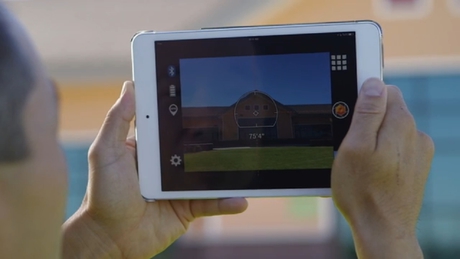Software testing that's as smooth as silk

ikeGPS hardware and software is used across the world by utility companies, defence forces, intelligence groups, energy companies, city councils, police and other companies or organisations that need to map, measure or otherwise record physical objects or geographical features.
ikeGPS solutions enable organisations to remotely take complex measurements of these ‘targets’ - such as utility poles - and capture their geospatial data efficiently and safely. The handheld devices can quickly record the geodata and photographs of multiple targets from up to 1000 metres away … vital when users are tasked with recording hard-to-reach or dangerous targets.
The ikeGPS platform is an integrated hardware and software package based on Windows Mobile. It can generate instant CAD models and exact-scale, geo-located 3D models at the touch of a button.
Jeremy Gold, software architect for ikeGPS, explains the importance of software testing. “Quality and reliability are crucial to our customers. We test the devices and software in real-world conditions using ‘Scrum’, an iterative and incremental, agile software development process,” he said. “Our development cycle runs in two-week sprints with lots of testing and daily Scrum meetings to determine priorities. Short sprints and complex test requirements made it increasingly difficult to meet demands using a heavily manual testing process. We needed more automation.”
Silk Mobile was the solution. “We selected Silk Mobile for its easy-to-use interface enabling a fast uptake with our developers, as well as its deployment flexibility and the ability to be used across multiple hardware platforms,” he added.
An expansion of automated testing is gradually reducing all human input. Regression, unit and memory tests are carried out through the testing framework, which integrates Silk Mobile. The Silk Mobile user interface made integration into the testing framework very easy. Tests were run nightly and HTML test results saved to the server for further analysing.
Gold could immediately see the benefit. “Following the Silk Mobile implementation, the testing effort was soon reduced by 25% - four-person testing days were reduced to three,” he said. “In a two-week development sprint with four team members, this represents a significant increase in resources and will translate to cost savings too. In fact, we expect to achieve full ROI on Silk Mobile within six months.”
The plan is to extend the test suite, further reduce human input to achieve at least 50% automation and continue developing tests in parallel with new functionality. The products are continually enhanced and the development resources freed up. The increased use of automated testing contributes towards a better product with improved functionality and greater features.
“The testing framework we have put in place with Silk Mobile is completely scalable and will support our move towards new hardware platforms,” said Gold. “With increased automation in the test process, we are set up to take full advantage of new business opportunities with a superior product.”
IoT demands alternatives as 3G sunset looms
The impending 3G shutdown is a daunting prospect for organisations across ANZ that rely on...
Broadband measurement shows online gaming stacks up
The ACCC's latest Measuring Broadband Australia report has found that consumer connections to...
BlackBerry stopping one cyber attack per minute
A new report from BlackBerry's Threat Research and Intelligence team highlights the...




